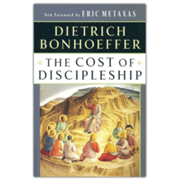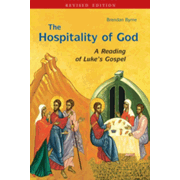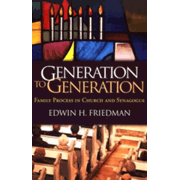
OUR BIBLE Study for the Fourth Sunday in Lent comes to us
from the Gospel According to Saint Luke. A parable concerns both errant and faithful
persons within the church family, and the work of God on their behalf….
“NOW THE tax collectors and sinners were all drawing
near to hear him. And the Pharisees and the scribes murmured, saying,
"This man receives sinners and eats with them." So he (Jesus) told
them this parable…
"There was a man who had two sons; and
the younger of them said to his father, 'Father, give me the share of property
that falls to me.' And he divided his living between them.
Not many days later, the younger son gathered
all he had and took his journey into a far country, and there he squandered his
property in loose living. And when he had spent everything, a great famine
arose in that country, and he began to be in want. So he went and joined
himself to one of the citizens of that country, who sent him into his fields to
feed swine.
And he would gladly have fed on the pods that
the swine ate; and no one gave him anything. But when he came to himself he
said, 'How many of my father's hired servants have bread enough and to spare,
but I perish here with hunger! I will arise and go to my father, and I will say
to him, "Father, I have sinned against heaven and before you; I am no
longer worthy to be called your son; treat me as one of your hired
servants."'
And he arose and came to his father. But while
he was yet at a distance, his father saw him and had compassion, and ran and embraced
him and kissed him. And the son said to him, 'Father, I have sinned against
heaven and before you; I am no longer worthy to be called your son.' But the
father said to his servants, 'Bring quickly the best robe, and put it on him;
and put a ring on his hand, and shoes on his feet; and bring the fatted calf
and kill it, and let us eat and make merry; for this my son was dead, and is
alive again; he was lost, and is found.' And they began to make merry.
"Now his elder son was in the field; and
as he came and drew near to the house, he heard music and dancing. And he
called one of the servants and asked what this meant. And he said to him, 'Your
brother has come, and your father has killed the fatted calf, because he has
received him safe and sound.'
But he was angry and refused to go in. His
father came out and entreated him, but he answered his father, 'Lo, these many
years I have served you, and I never disobeyed your command; yet you never gave
me a kid, that I might make merry with my friends. But when this son of yours
came, who has devoured your living with harlots, you killed for him the fatted
calf!'
And he said to him,
'Son, you are always with me, and all that is mine is yours. It was fitting to
make merry and be glad, for this your brother was dead, and is alive; he was
lost, and is found.' “ (Luke 15:1-3, 11b-32)
 |
The Cost of Discipleship By Dietrich Bonhoeffer |
Situational
Repentance?
Under the guidance of the Holy Spirit, Luke’s gospel first addressed
this scripture to the diverse Christian communities composed of both Gentiles
and Jews. His initial audience was located across the geography of Rome, Greece
and Asia Minor. This text we read now was apparently added by the scribes onto an
earlier discourse found in the “Q” document… the parables concerning the lost
sheep and the lost coin. We testify to this based on the fact that many
early parables are also found in the Matthew’s gospel, published in written
form about 85-90AD, which is claimed to be a scant few years after this Lukan account that we
discuss today. However our subject text, often termed as the, “wandering
Jew” parable, is found exclusively in Luke. The story tells about Jesus
relating a parable of extravagant forgiveness.
Within this story is a
lad who strays from the fold of family, unconstrained as to tribal morality and expressed
faith. The errant youth soon finds that his inheritance is gone, and so gets a job
working for a farmer or herdsman. There he is given the task of feeding a herd
of pigs. Significant then is that his youthful folly brought him not only to financial
and environmental hardship, but he received greater insult that he had to feed
that which yet is repugnant to the Jewish kosher palate. Worse yet, he existed
in starving and those unworthy animals had plenty to eat. Consequently, we read that he was
thus portrayed as being a situational repentant. As such he was challenged
by circumstance to return to his sorrowful father, even though we readers might think his
reasons may be suspect. Once there, he received a royal welcome from his father...
much to the chagrin of the elder brother.
 |
The Chosen: Seasons 1 & 2, DVDS By Vidangel Productions |
Royal Bestowing?
This parable has similar foundation in several Old Testament
teachings. They each challenged the ancient tribal custom of male
primogeniture, where the first born son got everything at the father’s
incapacity or death. and then at will he shared only what he saw fit. The first story
we might hold up where God chose to honor persons according to his servant's will, rather
than observing human custom, was in the inheritance between Isaac and Ishmael.
This is fully described in the book of Genesis. We also raise the
example of Joseph.., who was sold into slavery because of his endangering of
primogeniture rights… since his father loved him the most though many brothers
proceeded him in birth order. Yet God, working in the unfolding history of Israel,
granted that Joseph was conferred with first born honors... through a foreign hand.
“Then Pharaoh took
his signet ring from his hand and put it on Joseph's hand, and arrayed him in
garments of fine linen, and put a gold chain about his neck; and he made him to
ride in his second chariot; and they cried before him, "Bow the
knee!" Thus he set him over all the land of Egypt.” (Genesis 41:42-43)
We note that the man, Joseph… was not the
first born of his father. But the Genesis text about Joseph reveals that
Pharaoh did not have to abide by Hebrew primogeniture, and as such bypassed the custom because of need
and favoritism.
 |
The Hospitality of God: A Reading of Luke's Gospel By Brendan Byrne |
Also found in the
writings of the prophets, we find that God historically chose to honor one who had once again
come in second…
“Now Joshua, standing
before the angel, was clothed with filthy garments. And the angel said to those
who were standing before him, "Remove the filthy garments from him."
And to him he said, "Behold, I have taken your iniquity away from you, and
I will clothe you with rich apparel." And I said, "Let them put a
clean turban on his head." So they put a clean turban on his head and clothed
him with garments; and the angel of the Lord was standing by.” (Zechariah 3:3-5),
Therefore we see a pattern
concerning exceptions to Jewish tribal primogeniture. We become clearly convinced
by Zechariah that God will do what God will do, irregardless of what humans may
consider as traditionally right. As Saint Paul clearly states, “All have sinned
and fall short of the glory of God… thus condemns all, and chooses according to
his divine purpose. Hebrew history reveals that God often chose a family’s
second-born to do great tasks.
This principle of choice holds
true in Luke. During Jesus’s ministry, Luke related that our Lord echoed this scriptural
truth when approached about a lawsuit between two brothers, Jesus said in
Luke 12:13, “Who made me a judge or
arbitrator over you”. Thus we rightly
consider in that earlier text, Luke had worked to set the basis for the later
telling of this parable. This was so that we already know before God… birth
order is a matter that our Lord may entirely disregard! As well, it highlights
that God’s purposes are to restore broken family ties.
Why the Younger?
We must note that two issues arise before the radically
forgiving father, issues that came before our God as the early Christian church
history unfolded. I contend that the wandering son represented the Gentiles that
were found in Luke’s churches; whereas, the elder brother embodied apparent inheritance
jealousies within the long, seemingly faithful Jewish contingent.
Because the story was
found as such only in Luke, I postulate from this singularity that in the infant
Christian communities dispersed widely in geography… and ranging greatly in ethnic
population having both Jewish persons and Gentiles… may have contained Jewish elders
lamenting. These may have thought that they were not treated properly with
seniority deference. Hence this story not only related the luxury of undeserved
forgiveness for the Gentiles, which brings them back into the household in
royal fashion.., but a gentle smack of “get over it!” was being given to the beloved Jewish
persons within the early church. These latter had erroneously believed that
their dietary adherence and Sabbath laws and good works should cause them an earned
priority. However, as Saint Paul emphasized, we are not saved by works but by faith in Christ Jesus, our
Lord.
Take note that the
elder son in the story, when arguing his case for primacy, challenged the right
of his father to dispense free grace. Is this not a sign of disrespect… a sin was
thus committed by the elder before the father… by accusing that he was unfit for the task of
leading the family?
 |
Generation to Generation: Family Process in Church and Synagogue By Edwin H. Friedman |
What Now?
Now we must ask today whether the Church walks the same
paths of pride-filled faith expression. Do we stagger before God making
accusations, falling beneath satanic powers that whisper into our jealous ears?
Do we retain a self-centered false righteousness? Do we harbor against our God,
growing discomfort that the divine nature gives to another an undeserved, grand
reception.
Do we jealously see acceptance and celebration as unfair? Do we make nasty noises whenever a denomination, a faith community, or person returns to the household of God without a blatant compensatory sign… and are blessed by our Father for so doing? I fear that in all cases the answer is in the affirmative. We who are now elder children yet have much to learn.
Do we jealously see acceptance and celebration as unfair? Do we make nasty noises whenever a denomination, a faith community, or person returns to the household of God without a blatant compensatory sign… and are blessed by our Father for so doing? I fear that in all cases the answer is in the affirmative. We who are now elder children yet have much to learn.
I dare say that recent
headlines found in modern church publications call those who have strayed from right
interpretation of scripture to return to the farm. We wish them to cease feeding
the secular swine popular, worldly opinion, but we also act superior when they do
repent. In the name of our Lord, I say that all elder brothers need to be reminded
by this text whenever such wanderers return. We would be well advised to drop haughty
“works righteousness” attitudes. Let us rejoice in our Lord’s grace.
Those who repent, even
those whose motivations are suspect, are yet forgiven. This needs to be
celebrated. Churches that develop a tightening of cliques in reaction whenever
a lapsed or heretical member shows up at the door, or a new family begins to
attend with secular-tainted faith expressions, often incredulously wonder when their
stiff-necked behavior causes participation and attendance to fall away. This
attitude should not stand among us!
I conclude therefore,
with these words of admonition and guidance from scripture…
“So I exhort the
elders among you, as a fellow elder and a witness of the sufferings of Christ
as well as a partaker in the glory that is to be revealed. Tend the flock of
God that is your charge, not by constraint but willingly, not for shameful gain
but eagerly, not as domineering over those in your charge but being examples to
the flock. And when the chief Shepherd is manifested you will obtain the
unfading crown of glory.
Likewise you that are younger be subject to the elders. Clothe yourselves, all of you, with humility toward one another, for "God opposes the proud, but gives grace to the humble."
Humble yourselves therefore under the mighty hand of God, that in due time he may exalt you. Cast all your anxieties on him, for he cares about you. Be sober, be watchful. Your adversary the devil prowls around like a roaring lion, seeking some one to devour. Resist him, firm in your faith, knowing that the same experience of suffering is required of your brotherhood throughout the world.
And after you have suffered a little while, the God of all grace, who has called you to his eternal glory in Christ, will himself restore, establish, and strengthen you.
Likewise you that are younger be subject to the elders. Clothe yourselves, all of you, with humility toward one another, for "God opposes the proud, but gives grace to the humble."
Humble yourselves therefore under the mighty hand of God, that in due time he may exalt you. Cast all your anxieties on him, for he cares about you. Be sober, be watchful. Your adversary the devil prowls around like a roaring lion, seeking some one to devour. Resist him, firm in your faith, knowing that the same experience of suffering is required of your brotherhood throughout the world.
And after you have suffered a little while, the God of all grace, who has called you to his eternal glory in Christ, will himself restore, establish, and strengthen you.
To Him is the dominion for ever and ever.
Amen. (1 Peter 5:1-11).
We who are called unto
the Lord’s purpose need say again… let us be reconciled to one another for the
planting of the gospel seeds. So may it be… Amen
We offer you this review of our book available on Amazon. As senior citizens, we are dependent in part on income from this page and other sources. Click HERE!
We offer you this review of our book available on Amazon. As senior citizens, we are dependent in part on income from this page and other sources. Click HERE!


No comments:
Post a Comment